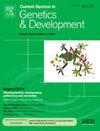Strategies for programmable manipulation of alternative splicing
IF 3.6
2区 生物学
Q2 CELL BIOLOGY
引用次数: 0
Abstract
Alternative splicing (AS) plays a pivotal role in protein diversity and mRNA maturation. Programmable control of targeted AS events is of longstanding interest in RNA biology, promising correction of dysregulated splicing in disease and discovery of AS events. This review explores four main strategies for programmable splicing manipulation: (1) inhibiting splicing signals with antisense oligonucleotides (ASOs), exemplified by therapies approved by the U.S. Food and Drug Administration, (2) applying DNA-targeting clustered regularly interspaced short palindromic repeats systems to edit splicing signals, (3) using synthetic splicing factors, including synthetic proteins and ribonucleoproteins, inspired by natural RNA-binding proteins, and (4) guiding endogenous splicing machinery with bifunctional ASOs and engineered small nuclear RNAs. While ASOs remain clinically prominent, emerging technologies aim for broad, scalable, durable, and precise splicing modulation, holding promise for transformative advancements in RNA biology and therapeutic interventions.
可编程操纵替代剪接的策略。
替代剪接(AS)在蛋白质多样性和 mRNA 成熟中起着关键作用。可编程控制目标 AS 事件是 RNA 生物学长期关注的问题,有望纠正疾病中的剪接失调并发现 AS 事件。本综述探讨了可编程剪接操作的四种主要策略:(1)用反义寡核苷酸(ASO)抑制剪接信号,美国食品药品管理局批准的疗法就是一例;(2)用反义寡核苷酸抑制剪接信号,美国食品药品管理局批准的疗法是一例;(3)用反义寡核苷酸抑制剪接信号,美国食品药品管理局批准的疗法是一例;(4)用反义寡核苷酸抑制剪接信号,美国食品药品管理局批准的疗法是一例。美国食品和药物管理局批准的疗法就是一例;(2) 利用 DNA 靶向簇状规则间隔短回文重复序列系统编辑剪接信号;(3) 利用合成剪接因子,包括受天然 RNA 结合蛋白启发的合成蛋白和核糖核蛋白;(4) 利用双功能 ASO 和工程化小核 RNA 引导内源性剪接机制。虽然 ASO 在临床上仍很突出,但新兴技术旨在实现广泛、可扩展、持久和精确的剪接调控,有望在 RNA 生物学和治疗干预方面取得变革性进展。
本文章由计算机程序翻译,如有差异,请以英文原文为准。
求助全文
约1分钟内获得全文
求助全文
来源期刊
CiteScore
7.90
自引率
0.00%
发文量
102
审稿时长
1 months
期刊介绍:
Current Opinion in Genetics and Development aims to stimulate scientifically grounded, interdisciplinary, multi-scale debate and exchange of ideas. It contains polished, concise and timely reviews and opinions, with particular emphasis on those articles published in the past two years. In addition to describing recent trends, the authors are encouraged to give their subjective opinion of the topics discussed.
In Current Opinion in Genetics and Development we help the reader by providing in a systematic manner:
1. The views of experts on current advances in their field in a clear and readable form.
2. Evaluations of the most interesting papers, annotated by experts, from the great wealth of original publications.[...]
The subject of Genetics and Development is divided into six themed sections, each of which is reviewed once a year:
• Cancer Genomics
• Genome Architecture and Expression
• Molecular and genetic basis of disease
• Developmental mechanisms, patterning and evolution
• Cell reprogramming, regeneration and repair
• Genetics of Human Origin / Evolutionary genetics (alternate years)

 求助内容:
求助内容: 应助结果提醒方式:
应助结果提醒方式:


